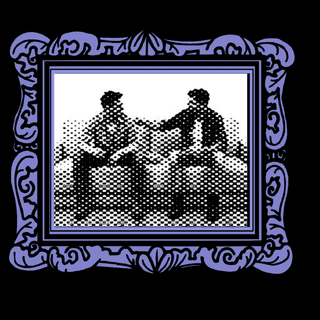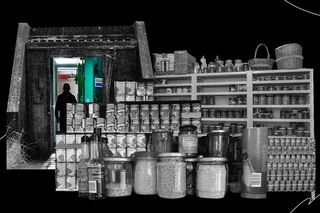
What Makes Doomsday Preppers Brace For The Apocalypse?
For some people, the predictability of imminent danger eliminates the anxiety caused by uncertainty.

When one hears of doomsday preppers, it brings to mind National Geographic’s TV show by the same name, with its caricaturist representations of survivalists. There’s also a whole doomsday industry catering to survivalists’ need to prepare for the end of the world. But our knowledge about the inspirations, aspirations, and motivations of doomsday preppers still remains either minimal, or limited by media stereotypes.
A doomsday prepper is a person who is convinced that an emergency, or a catastrophic event, is imminent — probably within their lifetimes. In anticipation of such breakdown of normalcy, due to the disintegration of political, social, or natural, structures and ecosystems, they gear up to sustain themselves through the crisis. This is achieved, typically, by building bunkers, stockpiling food, water, medicines, and other supplies, and in some cases, ammunition too. They subscribe to the idea of survivalism, and the glorification of self-sufficiency. Some preppers also seek out other survivalists to network with them — seeking solace, safety and strength in numbers. There is, of course, the pervasive hope that collective action will help them set up a new world order together when the present one collapses.
“I always carry two or three bin bags so I can make shelter no matter where I go. One of the bin bags can be used to make a roof and I could fill the others with leaves to create comfort and heat,” a doomsday prepper told The Conversation. “For me, keeping my family safe and secure each and every day is what I focus on… For the most part, safety is an illusion. Your best chance at actually being safe however is when you take control of the parameters,” a doomsday prepper interviewed by Bradley Garrett, an American social and cultural geographer, for his paper Doomsday Preppers and the Architecture of Dread, published this April, said.
His paper also described how some doomsday preppers fear a catastrophic ripple effect caused due to “a cascade of existential horror brought on by connectivity, speed, hyperbolic partisan media, resource depletion and, ultimately, fragility brought on by overpopulation, globalisation, and technological advancement.”
Related on The Swaddle:
Are You the Pandemic Prepper, or the Freeloading Denier?
While doomsday preppers continue to brace for disasters that may or may not be imminent, psychologists have a host of theories about what makes individuals susceptible to apocalyptic beliefs. Individuals with a history of trauma are often prone to the belief that “the end is nigh,” according to Shmuel Lissek, a neuroscientist at the University of Minnesota. And yet, for some, attributing doom to some larger cosmic order is comforting insofar as it removes any sense of individual responsibility, possibly in everyday omissions and commissions, Lissek added.
Karen Douglas, social psychologist at the University of Kent, believes that traits like a “feeling of powerlessness, often connected to a mistrust in authority” is also a common trait among doomsday preppers.
Studies also suggest that knowing that an unpleasant, or painful experience, is imminent is reassuring for some. The predictability of imminent danger eliminates the anxiety caused by uncertainty. Knowing that something terrible is about to happen can make some individuals stop dwelling on uncertainties about the future, and focus instead on bracing themselves for the upcoming catastrophe.
A report by The New Yorker in 2018 also found that the fears of survivalists are often based on real-life disasters that have already happened, and been documented in the media, rather than sci-fi fantasies. Seeing these events unfold have convinced them that they must be prepared to fend for themselves. “You have to realize that people are not going to come take care of you. You really have to be able to take care of yourself,” Scott Bounds, a member of NYC Preppers, said.
Related on The Swaddle:
Why Do People Still Believe In Astrology?
A pre-print of a new study, published this week in PsyArXiv, found that fans of apocalyptic movies may be more resilient, and better prepared mentally and practically, to deal with pandemics like Covid than everyone else. The researchers also noted, based on empirical evidence, that people may deliberately engage in frightening fictional experiences as simulations that help them gather information and model plausible solutions. This evinces yet another layer of preparedness by survivalists. The researchers believe that the vicarious experience of watching an apocalyptic event unfold onscreen prepares them for the disaster in real life. “Compared to somebody who has never simulated the end of the world, you’ll be in a better place because you have that vicarious experience,” Mathias Clasen, a psychologist at Aarhus University and co-author of the study, told The Guardian.
For some, apocalypse simply presents an opportunity for a new beginning. This theory led Garrett’s to conclude that a disaster for some, might be a utopia for doomsday preppers. Currently, distressed by global warming and environmental degradation, coupled with anxiety about the Trump administration, some American liberals and leftists have, in fact, become doomsday preppers.
“All of this uncertainty and all of this fear comes together and people think maybe life would be better [after a disaster],” Steven Schlozman, Assistant Professor of Psychiatry at Harvard Medical School, said. “[Inside a bunker,] you could learn how to meditate, you could learn how to levitate, you could walk learn how to walk through walls. When you get rid of all the distractions and crap around us keeping us from doing these things, who knows what you can accomplish?” another one of Garrett’s interviewees said.
Devrupa Rakshit is an Associate Editor at The Swaddle. She is a lawyer by education, a poet by accident, a painter by shaukh, and autistic by birth. You can find her on Instagram @devruparakshit.
Related


‘Rasbhari’ Is a Tongue‑In‑Cheek Look at How We Demonize, Justify Infidelity
